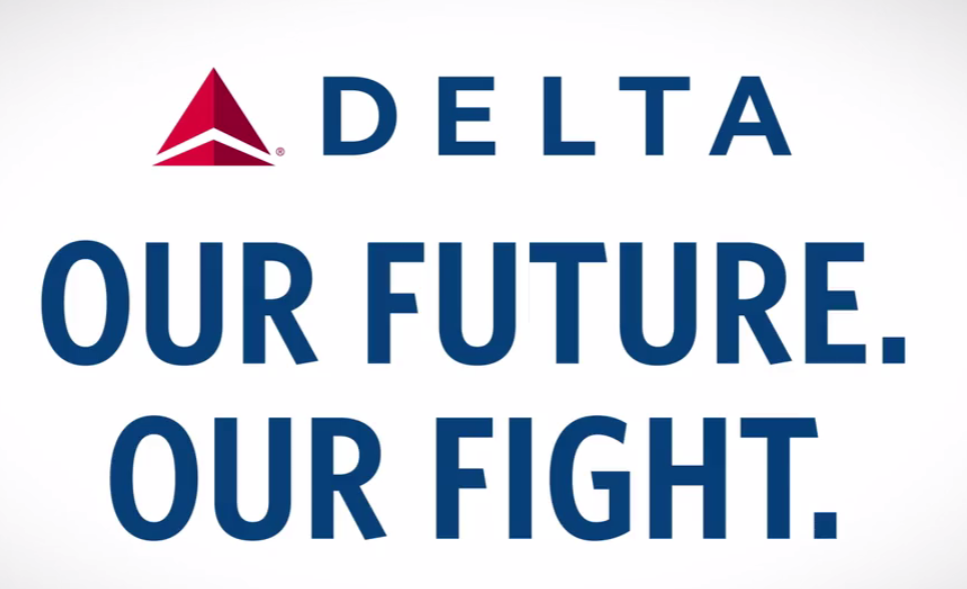
I was asked on Twitter about the Delta 15 minute ‘documentary’ making their case that three Middle Eastern airlines are unfairly subsidized, a threat to Delta’s business, and in response that the U.S. government ought to limit consumer choices and raise airfare prices.
I wasn’t going to write about this. Goodness knows I’ve covered the lies told by Delta, United, and American on this issue ad nauseam.
I watched the 2 minute preview on June 22, so cynical / dishonest I didn't spend 15 minutes of my life on the full version.
— gary leff (@garyleff) July 1, 2017
Lucky‘s post this morning at One Mile at a Time got my blood boiling enough that I had to get this out.
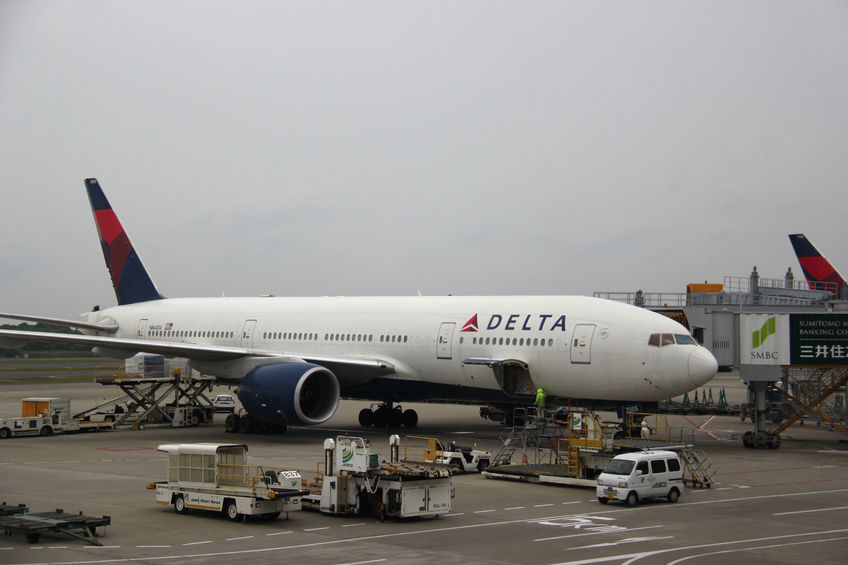
Copyright: idealphotographer
Airlines — Led at the Start By the U.S. — Have Been Instruments of Government
This isn’t my preferred way of fostering commerce, but the history is clear that airlines have been intertwined with governments since their inception. Air power was viewed as an important military tool. Government was the biggest customer of the airlines. And the ability to travel great distances quickly became an instrument of projecting power.
In the early days of US civil aviation the largest airline customer was the federal government in the form of the US Postal Service.
The 1925 Kelly Act authorized the Postal Service to contract with private airlines to carry the mail. That led to airlines received most of their revenue carrying mail. Often priced to the customer by the piece regardless of weight, with the government charged for weight, airlines were known to mail bricks and other large objects to themselves in other cities to pump up their revenue.
The 1930 Air Mail Act changed how mail was priced and gave broad contracting powers to the Postmaster General. The Postmaster used this power to consolidate contracts under three major airlines, forcing many airlines out of business. This came to fruition out of a 1930 meeting that became known as the ‘Spoils Conference’.
The government had dictated which airlines would survive and prosper, and awarded contracts to airlines that hadn’t been the lowest bidder. When the story of what transpired finally came out it was dubbed the Air Mail Scandal and it led to the cancellation of contracts and to the Roosevelt administration enlisting the miltary to carry mail. They weren’t equipped to do this.
Accidents and deaths followed the military takeover of air mail, and contracts were finally returned to the private sector. None of the executives involved earlier could run airlines obtaining postal contracts and so leadership was jettisoned from the airlines.
None of the incumbent carriers were permitted to carry mail, so airlines changed their names – for instance Eastern Air Transport turned into Eastern Air Lines and Northwest Airways renamed itself Northwest Airlines. In fact all the major carriers who participated in the spoils conference received their old routes back under new contracts except United — which was apparently one of the only ones innocent of collusion — and its holding company which also controlled Boeing, Pratt & Whitney, Sikorsky and more were broken apart. Bill Boeing retired in his early 50s.
The Civil Aeronautics Act in the late 1930s created a new independent Civil Aeroenautics Authority (two years later with some responsibilities split into a precursor of the FAA, it was renamed the Civil Aeronautics Board). It was given the power to regulate airfares and decide which airlines served what routes.
The CAB saw it as its mission to limit entry and protect airlines from ‘ruinous competition’. It kept fares high and prevented airlines from expanding into many routes served by other carriers.
International aviation, though, became a tool of policy. One of the best books about Pan Am was Altschul and Bender’s The Chosen Instrument: Juan Trippe, Pan Am, The Rise and Fall of an American Entrepreneur. Pan Am became known as the U.S. government’s “chosen instrument” using the airline to foster policy goals, collect information, and spread influence. Some scholars have challenged the notion, though, suggesting that Pan Am itself freelanced and influenced U.S. foreign policy rather than simply the other way around.
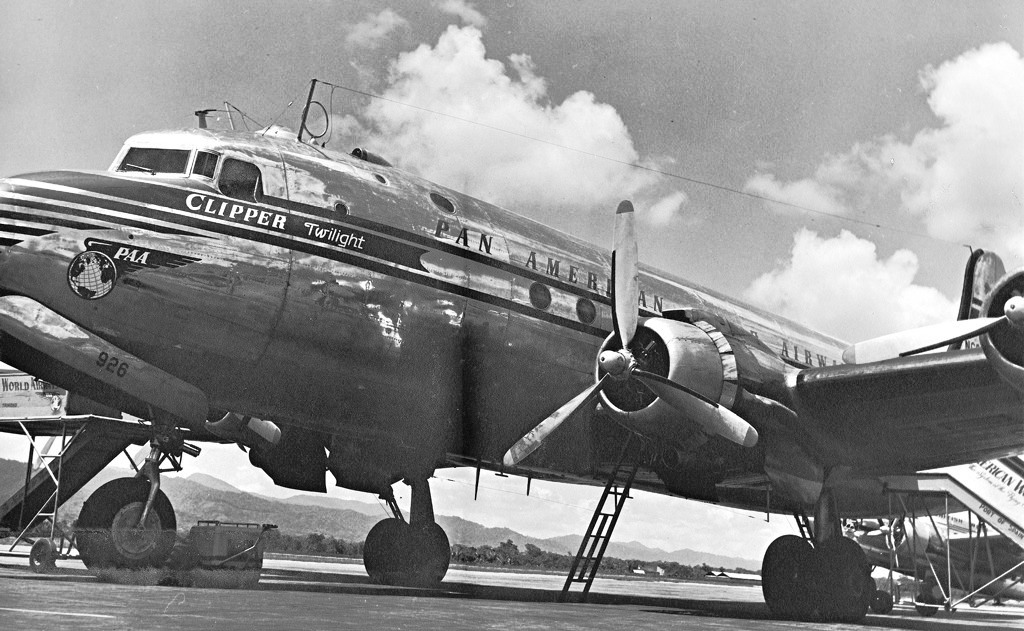
Piarco Airport, Trinidad in the 1950s, Copyright John Hill, Creative Commons Attribution-Share Alike 4.0
Regardless from the beginning U.S. airline success was intertwined with government policy which forced foreign governments to provide access to markets, which was the biggest customer funneling money to the airlines, and which protected airlines from competition.
In fact the very first major aircraft order American Airlines made was subsidized by the Reconstruction Finance Corporation as part of the New Deal. American’s Chairman C.R. Smith, later a cabinet secretary in the Johnson Administration, was best man in Franklin Roosevelt’s son’s wedding and a consummate crony capitalist.

It matters that the U.S. airlines were born in subsidy and grew as a tool of the U.S. government because the Gulf airlines today are at a similar stage of development.
U.S. Airlines Continue to Be Subsidized Today
American Airlines CEO Doug Parker personally and successfully appealed to the federal government for a bailout of America West, which went on to acquire US Airways and then American.
Parker is in charge of American in some measure because of pressure from the federal government’s pension agency during the airline’s bankruptcy. Had American offloaded its pensions in bankruptcy onto the Pension Benefit Guaranty Corporation, the PBGC would have become the airline’s biggest creditor. They pushed the creditors committee to accept an acquisition deal inside of bankruptcy rather than shedding the most costs possible, emerging from bankruptcy, and potentially doing any deal on stronger footing.
While American Airlines didn’t shed its own pensions on the federal government, billions in pension liability were moved off the balances sheets of Delta, U.S. Airways, and United in their own bankruptcies.
In the U.S. nearly all commercial airports are owned by government, and they generally share revenue with airlines for all the business activity that takes place inside. Air travel is taxed, of course, to pay for airports and air traffic control (Delta fights vigorously against shifting air traffic control outside of direct provision by the federal government). However it’s impossible to disentangle the airline industry from U.S. government. And the airline industry exercises tremendous influence over government policy in much the same way they accuse Gulf airlines of doing.
After all, United lost its CEO in a bribery scandal seeking official action from the Port Authority of New York/New Jersey in exchange for flights to the authority chairman’s vacation home. And they use government to protect themselves from competition even from U.S. airlines.
The Chairman of the House Transportation Committee was reported to date an airline industry lobbyist, and his Chief of Staff married an industry lobbyist. They provide him with campaign cash. Whenever you think for a moment that you want legislation to ‘rein in’ the industry remember that it’s his committee that will write the legislation and ask yourself whether it’s likely to do what you want it to do.
The Essential Air Service Program is a subsidy. So is the Civil Reserve Air Fleet program. So are fuel tax abatements, and marketing programs and guarantees against losses offered by airports and local governments in exchange for service. The claim that major U.S. airlines aren’t subsidized, or in bed with their governments, is simply silly on its face.
As it stands Delta leverages politics to keep out competition from a second Atlanta airport. On the one hand they hand out elite status to politicians and on the other hand they’re accused of threatening legislators with eliminating flights in their districts if they don’t vote to support subsidies for the airline.
Delta’s Big Lie Documentary
Delta released a 15 minute documentary last week full of propaganda and lies.
Delta claims in the video that:
- Emirates, Etihad, and Qatar shouldn’t be so successful since their countries are small (“the size of South Carolina”)
- They use ‘immense wealth’ to ‘take over international commercial aviation’
- They are ‘unfairly crushing competition’
- And this is illegal dumping
Delta says they’re “taking our jobs” and “taking our routes.” However these aren’t Delta’s routes by right. And U.S. airline jobs are at record highs.
Meanwhile Gulf carriers are largely cutting back, under attack because $45 a barrel oil means less business in their region. It’s hardly the case that they are ‘crushing’ the competition, and it’s unclear why only Delta should be allowed to do so.
The video suggests that major aircraft orders from the Gulf carriers suggest their growth is impossible by commercial standards, but they offer misleading statistics.
- They focus only on widebody orders
- That’s misleading because Delta itself has more planes on order than either Qatar or Emirates. And Delta and American have more planes on order than Qatar and Emirates combined, without even adding in other US airlines like United.
- Delta prefers to buy used widebodies
- And these aircraft orders from Boeing mean US jobs in any case
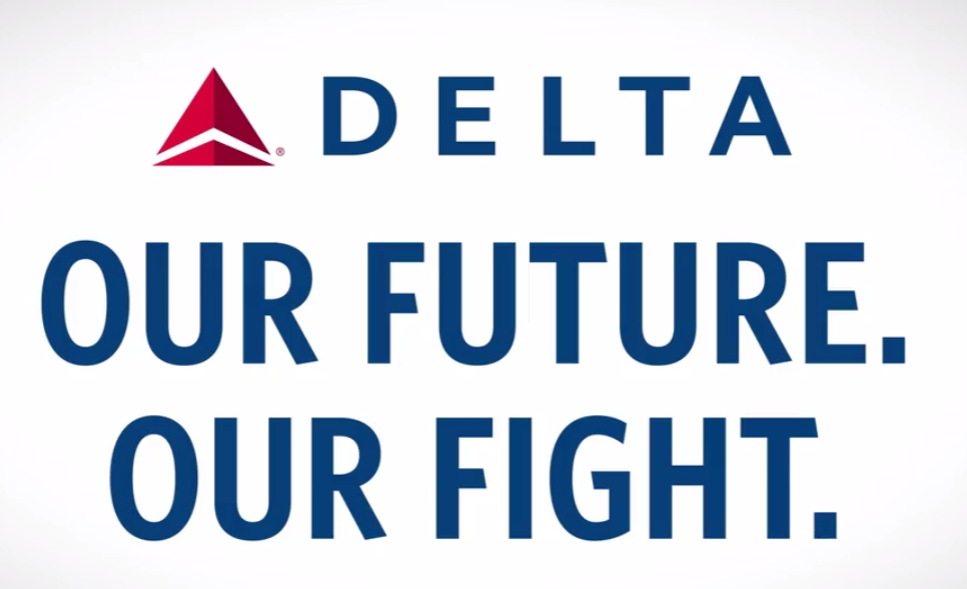
The video suggests that the Gulf carriers are already dominating Europe. But Air France itself was only partially privatized less than 20 years ago, with government ownership pushed under 50% as a requirement of merging with KLM. And Lufthansa which is cited indeed now partners with Etihad. British Airways, whose parent is 20% owned by Qatar, openly supports competition. (And statistics presented about strength of the Gulf carriers in Europe focus narrowly on Gulf traffic itself.)
Delta has great quotes from the ever quotable Qatar Airways CEO Akbar al-Baker who says absurd and stupid things. But splicing him in, wearing Arab clothing, talking about how he would ‘do business with the devil if it was win-win’ appears intended to stoke American racism. That’s consistent with Delta having raised 9/11 as justification for their cause (even as they continue to partner with Saudi government-owned Saudia).
The video scares that “at least one of the big three airlines could be in jeopardy” in the coming years from competition. Which is how competition works although of course it’s unlikely given the size of each, how much each of the big airline CEOs promise that their industry is no longer so volatile, and that the U.S. government carves out the entire U.S. domestic market and protects them from foreign competition already.
I nearly spit out my coffee when the video talked about how crucial this is for national defense, on the theory that Delta will no longer have widebody aircraft in the future and therefore will no longer be able to fly charter flights for the military. Those charters are largely a boondoggle for taxpayers, a subsidy program for airlines. In fact if anything they’d turn to smaller long range widebodies and away from larger Boeing 777s if their predictions in the video came true. United flies Boeing 787s non-stop to Singapore, for instance.
Although the claim that “the U.S. military depends on a strong commercial aviation industry” underscores the deep connection between major US airlines and the government — exactly what they criticize the Gulf carriers for.
Delta likes the Canadian aviation model placing limits on Gulf carriers, but somehow Canada isn’t analogous with the U.S. industry when discussing air traffic control.
By putting President Trump on screen promising to ‘enforce trade agreements’ they’re playing to the President’s vanity and desire to keep his own promises, though it’s not at all clear that the Gulf carriers are doing anything in violation of the agreements in fact the Obama administration appeared to conclude that they were not doing so. And in terms of U.S. priorities, working with the UAE and Qatar against ISIS is far more important for the U.S. national interest.
Gulf Airlines are Businesses Pursuing Their Governments’ Agendas
The story of Emirates, Etihad, and Qatar are different from each other, as much as United, American, and Delta would like to lump them together.
Emirates is profitable and has been for a long time. Etihad has been mostly a break-even proposition in recent times outside of disastrous investments in European airlines.
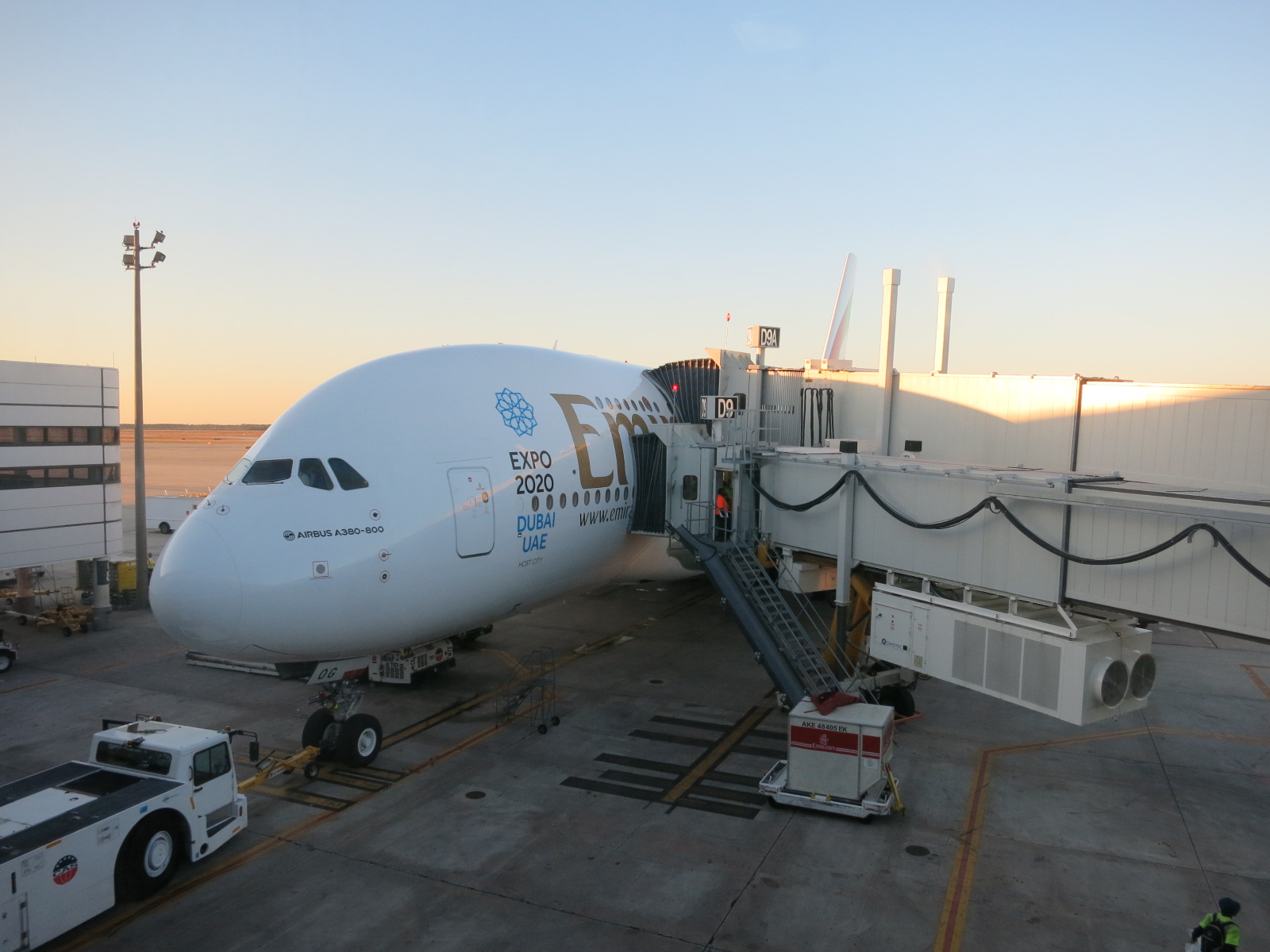
They aren’t generating a traditional return on capital, though, they’re building up commerce and tourism for the United Arab Emirates. They have to meet a commercial test, which is why their CEO lost his job and the airline has been engaged in a variety of cutbacks and is working to cut back on bad investments abroad. There’s not an endless checkbook subsidizing their efforts, but their efforts are aimed at fostering their government shareholder’s goals rather than simply extracting the most revenue possible from each flight.
Qatar is government-owned, they argue that it isn’t really ‘subsidized’ because the government’s stake is equity not subsidy. In reality the government is funding the enterprise, which is wide-ranging beyond merely air travel. And the enterprise as a whole is marginally profitable, though the airline itself likely is not.
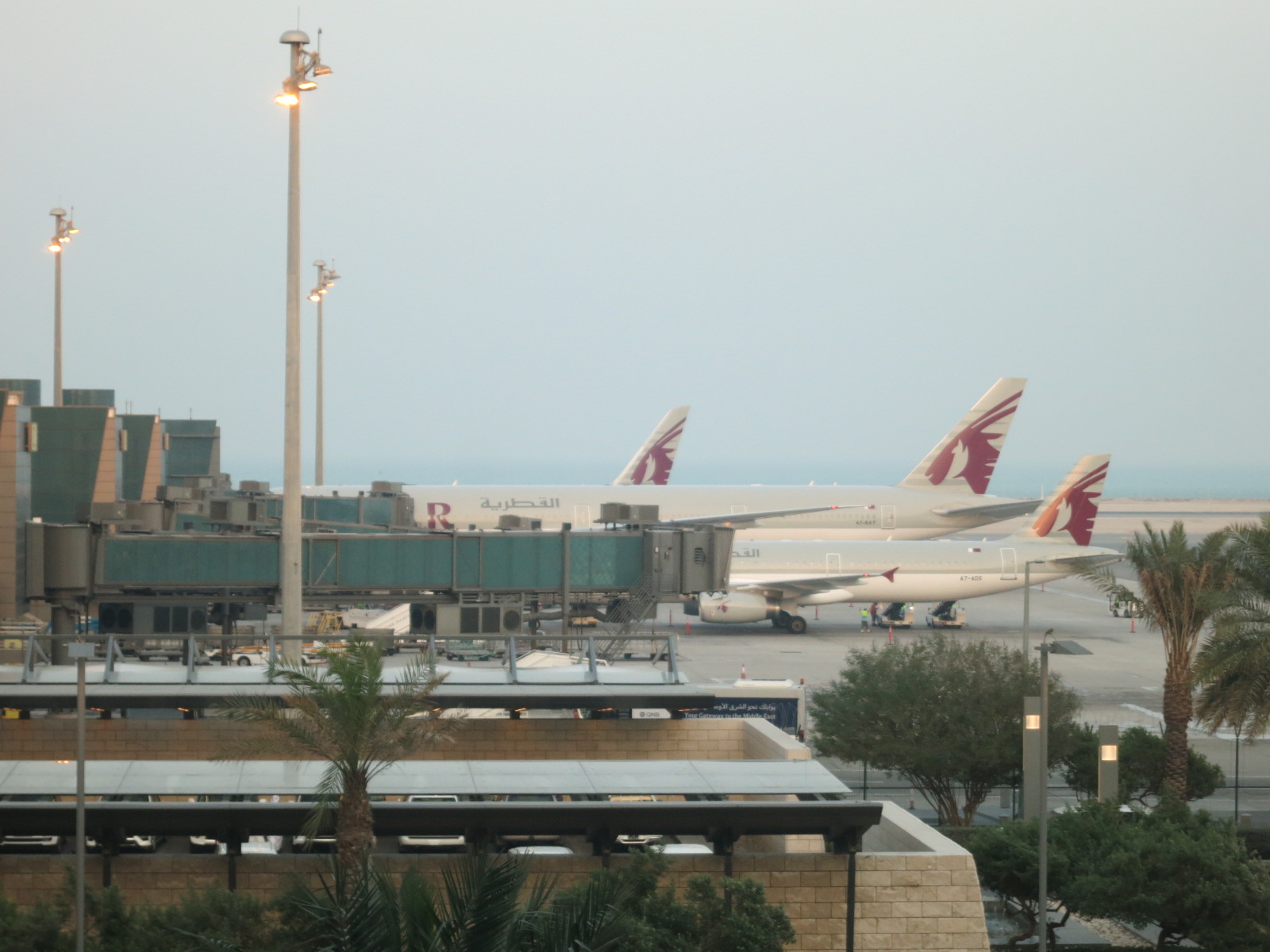
There’s no requirement that airlines be profitable, for most of their history U.S. airlines haven’t been profitable. American CEO Doug Parker re-assures investors that the U.S. aviation industry is different now precisely because, he argues, airlines are no longer running empty flights looking only for market share at the expense of profits and beating up on each other in uneconomic ways. That’s a departure from the vast history of the airline industry which has consistently gone through boom and bust cycles wiping out all of the profit the industry has ever made.
But Doesn’t Delta Have a Point Then and Should We Care?
U.S. airline industry losses, government subsidies, or U.S. airlines benefiting from subsidies is hardly unique. Delta partners with state-owned Saudia which is larger than Etihad. It shares revenue across the Atlantic with Alitalia which has been 49% owned by Etihad. It owns a stake in China’s most heavily subsidized airline China Eastern. And it doesn’t balk at state-owned Air India flying to the U.S., or for that matter Pakistan International Airlines.
At some level it may not be ‘fair’ to Delta or American to have to compete with airlines that have deep pockets behind them, just as it’s not fair for Alaska Airlines to have to compete against Delta having moved billions of its pension liability onto the federal government’s books.
On the other hand Alaska is subsidized too, especially for intra-Alaska flights. There’s really no good way to parse out what’s ‘fair’ or who is ‘hurt’ too much by government, and it’s not the role of government to do so when it would mean redistributing income from consumers to already profitable airlines.
It’s hard to generate sympathy for Delta, an airline bully on the global stage. and it’s especially hard to be sympathetic over the unfairness towards the most profitable airlines in the world. It’s hard to get worked up over aviation jobs which are at record highs — especially when the Gulf carriers bring more people to the U.S. and their flights support jobs, their aircraft purchases support jobs (they’re bigger buyers of Boeing aircraft than Delta), and their partnerships with Alaska and JetBlue create jobs. Moreover allowing them to fly unfettered to the U.S. is crucial to retaining the Federal Express hub in the Gulf as well.
Delta wants you to take a very narrow look at jobs — a self-interested one — and ignore that current policy has supported tremendous U.S. job growth in aviation.
Ultimately there is no economic theory which supports protectionism for mature profitable industries. The push for government action against Etihad, Emirates, and Qatar is pure self-interest at the expense of US consumers. And they’re willing to do anything in furtherance of that interest whether it’s fabricating evidence in their white paper or sucking up to President Trump.
